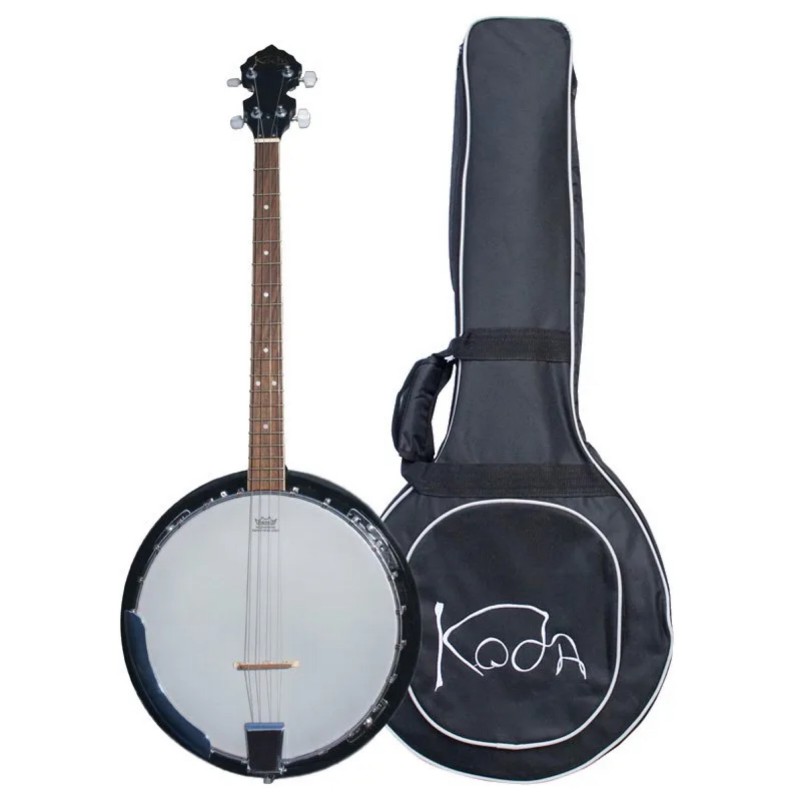No matter if you are to buy a banjo for Irish gigging purposes or simply as an instrument to practice on, it is essential that you know what qualities to look out for when searching for one. Consultations from an expert banjo dealer is highly recommended to guarantee you receive a top quality instrument at a good price.
A knowledgeable technician understands the demands of your music and will know exactly how to set up the banjo so it becomes an enjoyable instrument to play.
Tenor Banjos
A tenor banjo is commonly employed in traditional Irish and Celtic music, as well as early Jazz ranging from dance hall numbers, Ragtime, Dixieland songs and Tin Pan Alley tunes.
Tenor banjos, much like violins and violas, tend to be tuned in fifths. Additionally, they are traditionally played with a flat pick but can also be strumming or playing single notes for maximum versatility.
Today’s most commonly employed tuning for Irish tenor guitar is G, D, A and E (GDAE). This was first popularised by Irish banjo player Barney McKenna and has become standard practice.
However, you can opt for more conventional C, G, D and A tuning if that suits you better – which is often preferred when playing jazz and can produce brighter tones.
Four-String Banjos
For playing Irish gigs, four-string banjo models are your ideal choice as they are simple to learn and come in various lengths, string counts and styles.
When purchasing a four-string banjo, be sure to select an instrument with high-quality construction and sound. Also look for one with geared tuners to prevent its strings from going wildly out of tune.
Some four-string banjos come equipped with resonators to boost volume. This feature is particularly handy if you’re playing at an intimate acoustic venue and require greater coverage, while also making for an excellent beginner option.
If you’re ready to step up your playing game, a six-string banjo may be just what’s needed to take things further. These instruments feature similar construction as guitars but offer added speed and twang that gives ample variety – plus there are various styles available and excellent build quality!
Six-String Banjos
If you’re a guitarist looking to expand their repertoire with banjo, six-string banjos may be an ideal way to do so. Their distinctive look and sound emulate traditional tenor banjos while being louder.
Although most six-string banjos are open back models, some also feature resonator designs to produce more powerful tones. You can find these types of instruments at most music stores.
Make sure the banjo has all of the features necessary for you, such as an ergonomic neck, an excellent sounding banjo head and reliable tuners.
An important feature is a radiused fingerboard, which will enable your fingers to remain in their natural positions when playing chords and bar chords, making playing faster and easier overall.
If you play Irish music, a six-string banjo can provide an expressive sound that stands out amongst your band – there are various models to choose from so that there is sure to be one perfect for your playing style!
Backless Banjos
Banjos are easy to learn, versatile instruments that can fit in with different music genres and have become increasingly popular over time due to their distinctive sound that you won’t find elsewhere.
At an Irish gig, a banjo’s role is usually to follow the melody note for note; therefore a 17 or 19 fret tenor banjo works perfectly in this context.
The short fifth string on this type of banjo presents special challenges when used with a guitar for making subtle tonal changes, but you can often get around this by simply pressing down a model-railroad spike or titanium spike under its fifth string to press it onto its fret – this method often works great!
Most banjos feature long necks and tone rings to add more resonation or resonance to their sound, which is particularly useful during jam sessions.

